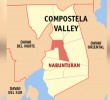Nobody wants to be dominated. The natural disposition of anyone is to be free—free to steer the direction of one’s own life, free to seek one’s own well-being and happiness. But the other side of this mold of thought is the desire to control—to control everything that figures in one’s drive for freedom. It is as much an irony as a mystery. But it is an undeniable fact of human existence and history.
One wants to exercise full freedom of will and action, and yet in the exercise of one’s freedom, one wants to hold sway over the will and actions of others. This unity of opposite tendencies may manifest in the limited sphere of relationships between individuals: at home between spouses, or between parents and children, or in the community between neighbors. But it also manifests in more encompassing and spectacular ways in international relationships. The historical phenomenon of colonization which gave rise to conflicts and wars between nations is such an incontrovertible reality we are bound to accept it as the essence of the development of humankind and society.
The colonialists wanted to liberate their country from the confines of territorial and commercial barriers for the continuance of their economic advance. They wanted to liberate their surplus goods from rotting or decaying in their domestic markets. And so what they did was to seek for dumping grounds of their surplus products, at the same time look for sources of raw materials to feed their hungry factories in their homelands.
And our country the Philippines became a hapless colony of western powers—dominated, subjugated, virtually enslaved, for as long as four hundred years!
The consequences are enormously devastating! We lost our native soul –our tongue has been reshaped to fit into the mold of a language incongruous with our racial individuality. Today, our cultural identity has yet to be unearthed from the thick layers of colonial attitudes, ways of thinking, modes of expression and everything that constitute the totality of our collective consciousness and lifeways.
Also — today—over sixty years from the granting of a bogus independence to what we now call the Philippine Republic we are still in colonial bondage. The process of colonial acculturation has not abated; nay, it has taken on a dizzying fast pace and in ways more unabashed. The will to resist and free ourselves from colonial bondage are being dampened by a national leadership that has entrusted our very soul to the American global merchants. Whereas in the past we deplore the lack of clearheaded direction of national policies wishfully towards cultural Filipinism, the present national leadership has shamefacedly endorsed the wholesale dominion of American imperialism over our national life—economically, politically, militarily, culturally.
All at once, the turning out of American clones among Filipinos is afforded smooth momentum via cultural pathways that hasten the formation of young Filipinos into culture-bearers of American lifeways. Behold the tsunami storm surges of TV and live performances ostensibly labeled as “Filipino shows” only to unfold their essential character as wanton exhibitions of American pop arts.
Such cultural gimmicks as Kalokalike, TheVoice, PBB, Talentadong Pinoy, and the like, seem to be innocent talent search shows or harmless “ramp walks”. Most disastrous if most attractive are beauty pageants left and right! But our acuminous cultural policymakers should have been more circumspect to realize their pernicious affect on the Filipino soul. Add to these the prostitution of indigenous people’s cultures under the much ballyhooed perverse thrust of the Tourism Industry. They are looked upon and exploited as attractions for the wondrous touch of their Lumad culture. But capitalist promoters in the tourism industry certainly know where their hearts are lodged — in their own moneybags more than their concern for national patrimony and cultural treasure.
In the same display of naiveté or chaste motives—or, perhaps, from lack of sensitivity and imagination, or simply hardheadedness—our educators and culturati do not seem to care about the looming disaster. In their heart of hearts and amid their shining intelligence, aren’t they aware at all of the swift drifting of our youth into un-Filipino nincompoops? Franz Fanon, the illustrious black educator and philosopher had categorized colored people who turned away from their racial-cultural origins as akin to coconuts, for being dark on the outside but white on the inside.
We might wonder how many among us Filipinos fall to that category that Fanon succinctly metaphorized. Verily, the spectacle of cultural alienation of Filipinos in these beloved times is akin to an exodus led by Prophet Noynoy from our national integrity and cultural identity to the “mythic land of milk and honey”. Our trek will surely end up in our consummate transformation into veritable little brown monkey Americans if we fail to redeem ourselves.
In our exasperation, frustration, desperation, we can seek refuge in the eternal light that our illustrious noble brown heroes have shed on us – we of little faith! Have their eternal seeds of injunction fallen on barren soil? Where goes the ardent voice of Andres Bonifacio in his Pag-ibig sa Tinubuang Lupa? What has become of the hope of the fatherland that Rizal has spoken of?
We can always hearken to their battlecry. Ever now and anon, let us fly the banner of resistance and struggle! There’s no other path to salvation and freedom.










